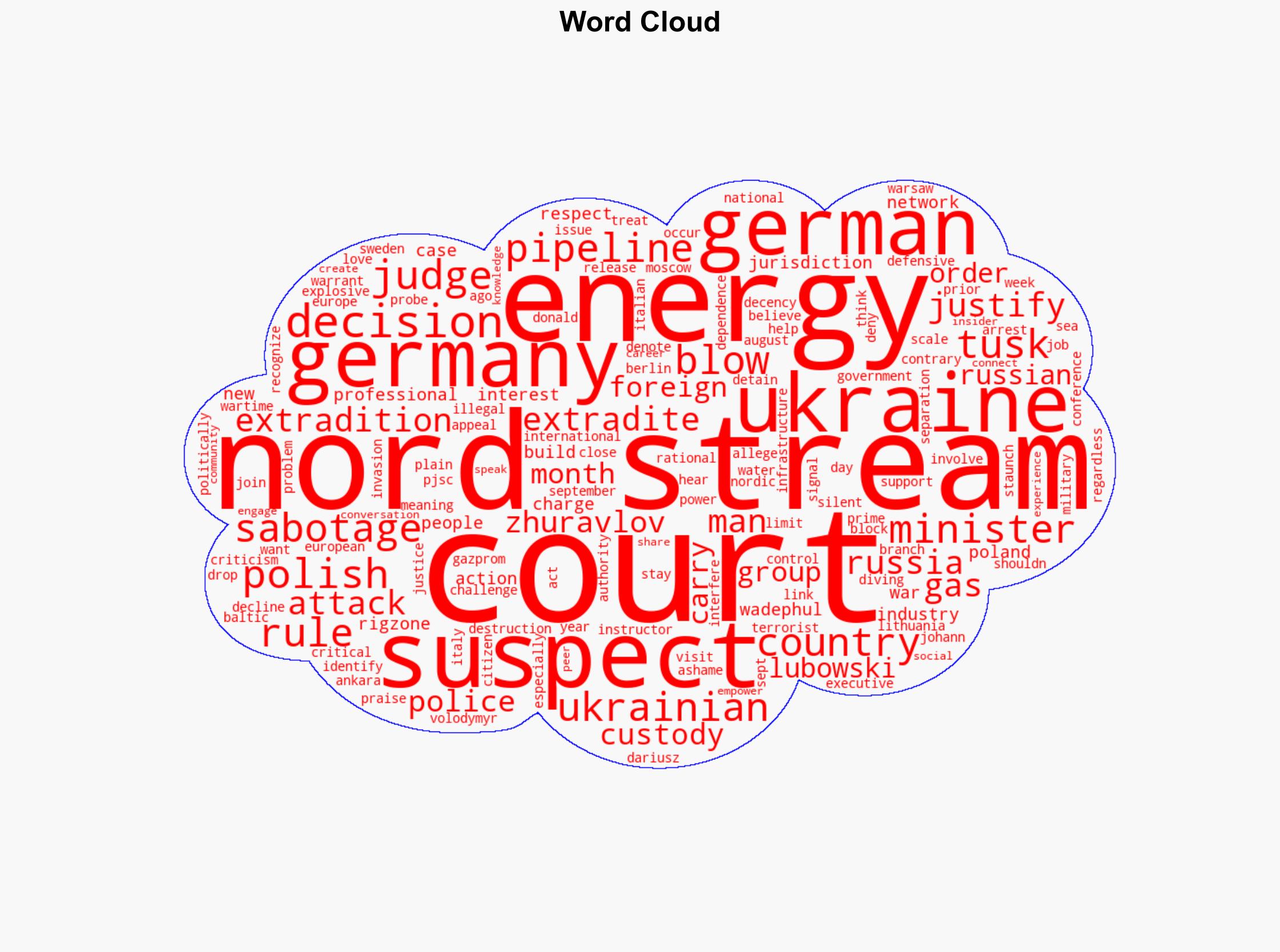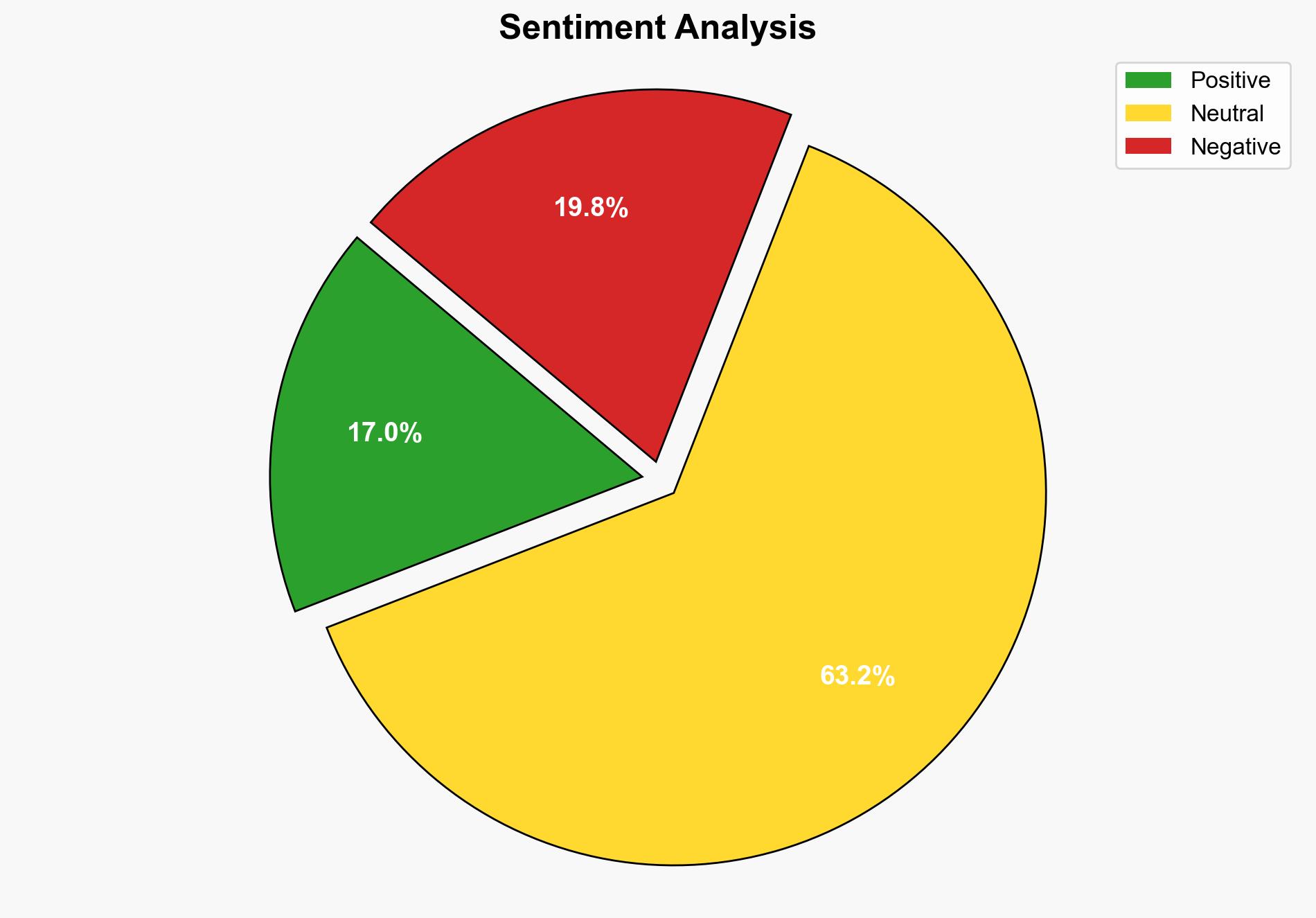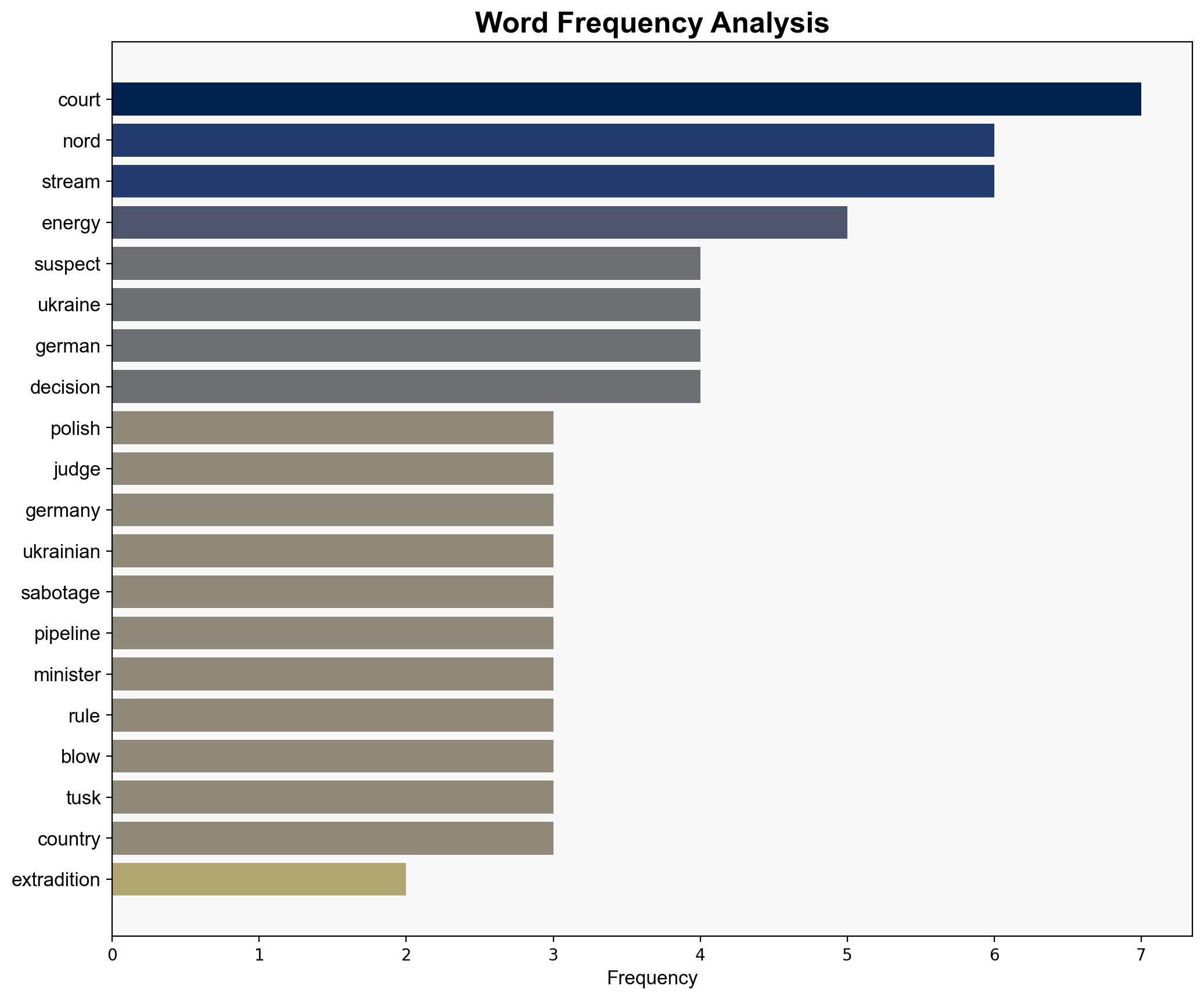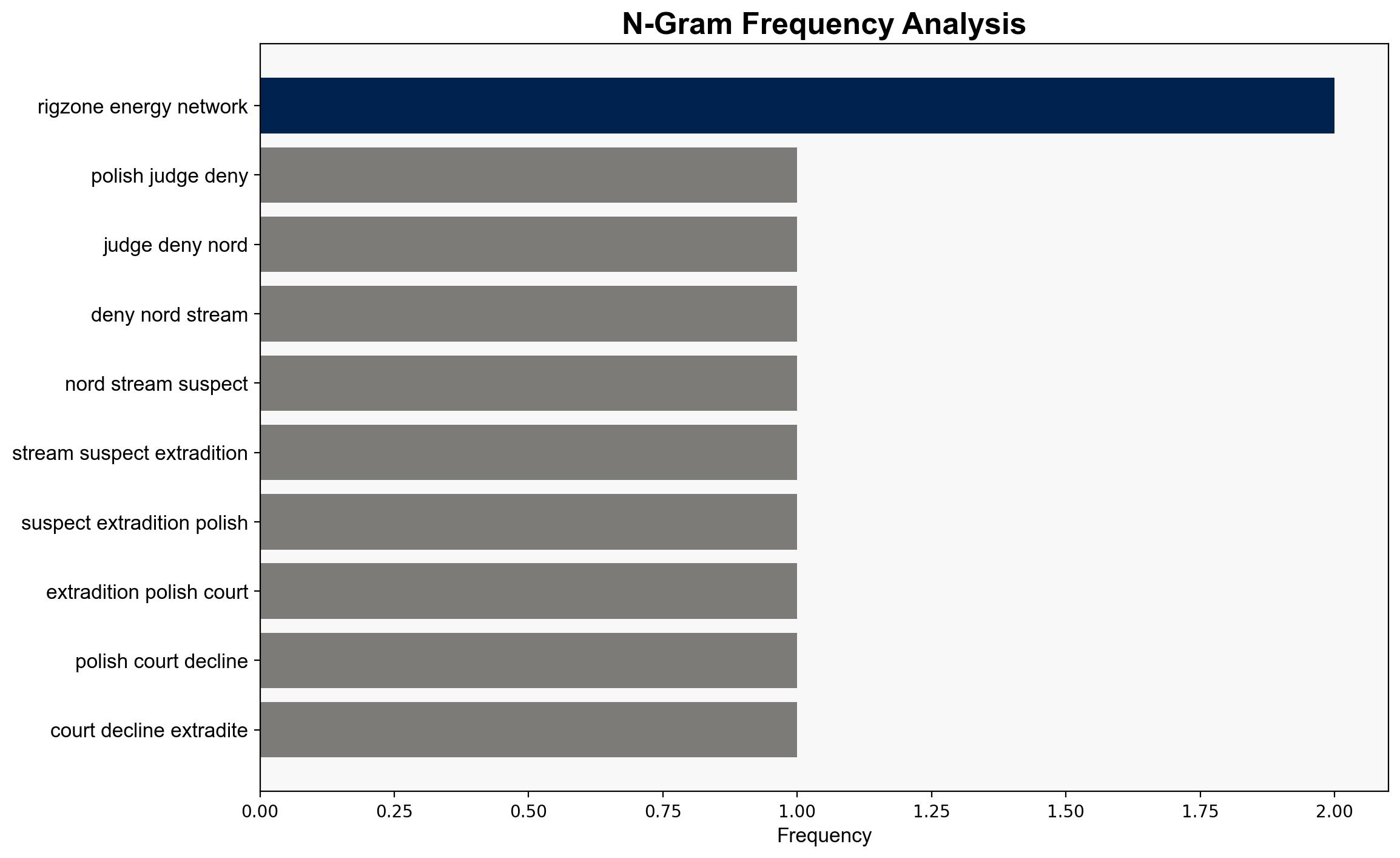Polish Judge Denies Nord Stream Suspect Extradition – Rigzone
Published on: 2025-10-20
Intelligence Report: Polish Judge Denies Nord Stream Suspect Extradition – Rigzone
1. BLUF (Bottom Line Up Front)
The decision by a Polish judge to deny the extradition of Volodymyr Zhuravlov to Germany, concerning the Nord Stream pipeline sabotage, highlights complex geopolitical dynamics and legal interpretations. The most supported hypothesis is that Poland’s decision is influenced by its strategic alignment with Ukraine and its stance against Russian energy dependence. Confidence Level: Moderate. Recommended action includes diplomatic engagement to clarify legal positions and mitigate potential tensions between EU member states.
2. Competing Hypotheses
Hypothesis 1: Poland’s decision is primarily influenced by its political support for Ukraine and opposition to Russian energy influence. This aligns with Poland’s historical stance and recent criticisms of German energy policies.
Hypothesis 2: The decision is based on legal interpretations regarding jurisdiction and the nature of the alleged sabotage as a wartime act, which falls outside typical extradition agreements.
Using ACH 2.0, Hypothesis 1 is better supported by Poland’s political context and historical actions, while Hypothesis 2 relies heavily on legal technicalities that may not fully account for the broader geopolitical implications.
3. Key Assumptions and Red Flags
– Assumption: Poland’s legal decision is independent of political influence, which may not hold given the geopolitical context.
– Red Flag: The rapid release of Zhuravlov without comprehensive legal proceedings could indicate political motivations.
– Missing Data: Lack of detailed evidence on the sabotage’s execution and Zhuravlov’s specific role.
4. Implications and Strategic Risks
– The decision could strain EU unity, particularly between Poland and Germany, affecting broader EU energy security strategies.
– Potential escalation in regional tensions if perceived as undermining legal cooperation frameworks.
– Risk of setting a precedent for handling similar cases involving geopolitical conflicts and energy infrastructure.
5. Recommendations and Outlook
- Engage in diplomatic discussions with Poland and Germany to address legal and political concerns, ensuring alignment on energy security policies.
- Scenario-based Projections:
- Best Case: Diplomatic resolution strengthens EU unity and clarifies legal frameworks for future incidents.
- Worst Case: Increased tensions lead to fragmented EU energy policies and weakened collective security.
- Most Likely: Ongoing diplomatic negotiations with temporary strain on Poland-Germany relations.
6. Key Individuals and Entities
– Volodymyr Zhuravlov
– Dariusz Lubowski
– Johann Wadephul
– Donald Tusk
– Gazprom PJSC
7. Thematic Tags
national security threats, cybersecurity, counter-terrorism, regional focus





